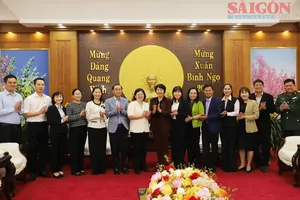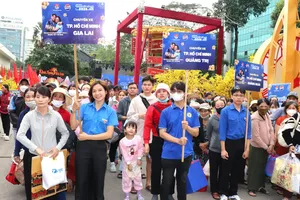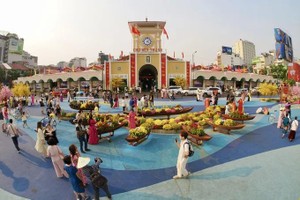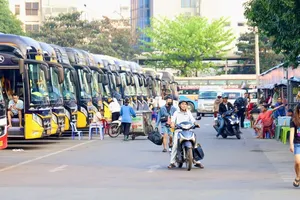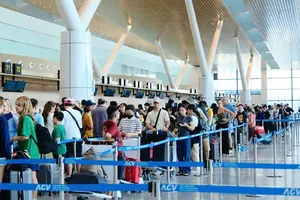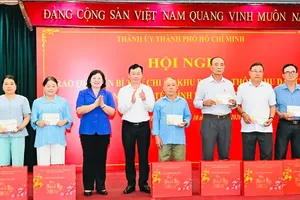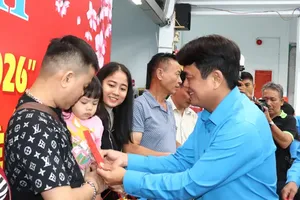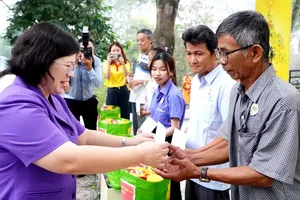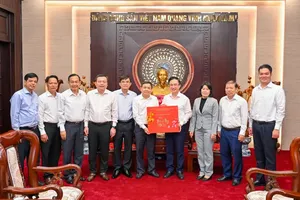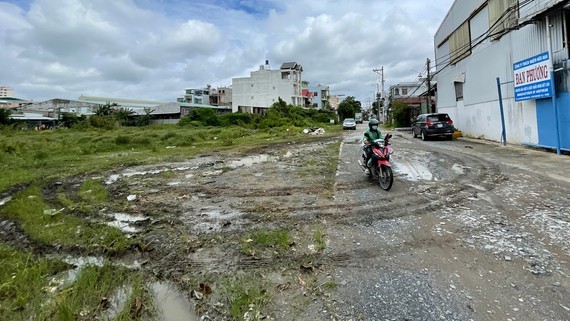
Vice Chairman of the HCMC Urban Development and Planning Association Nguyen Minh Hoa stressed on the measures to attract important investors to address current problems regarding land resources in HCMC.
He explained that many land projects are suspended because they do not consider socio-economic development aspects, which should be done before urban space planning for a more sustainable growth. The reason is to more precisely evaluate the potential development corresponding to the existing natural resources of a certain area, as well as current global trends, in order to devise the most suitable policy.
As to land compensation and recovery, Vice Chairman Hoa said that the only way to speed up this task is to adjust outdated content in legal documents and mechanisms, especially compensation price. He also suggested to seek a strong investor who has the power to logically handle current congestions, while the Government needs to impose a deadline for project completion.
At present, the surface area of HCMC is around 2,061km2, yet only 750km2 is actively used. Therefore, he mentioned the necessity to use land more effectively via re-categorizing parcels and upgrading technical and social infrastructure to attract more residents.
Lawyer Le Trung Phat, Director of Le Trung Phat Law Firm, recommended a change in investor capacity evaluation.
Before the introduction of the 2020 Investment Law, there used to be overlaps between the 2014 Investment Law and the 2013 Land Law, leading to inconsistency in project permit withdrawal. The 2014 Investment Law states that an investor without the capacity to complete a land project after 12 months will have the permit withdrew, yet the 2013 Land Law allows an extension of this deadline to 24 months. This contradiction has obviously been addressed in the 2020 Investment Law when it says that the Land Law has the final saying in project permit withdrawal.
Director Phat advised that there should be a bidding mechanism for land use in projects; the regulation to assess the financial capacity of investors through the charter capital of the company they registered with the authorities is not adequate; functional agencies should increase their monitoring over the progress of a land project, with severe punishments for those behind schedule; and it is necessary to have specific local planning to avoid localities massively approving land projects because of budget collection pressure.
These changes will allow the authorities to better understand the project progress and increase information transparency for investors’ clients.
Director General of Van Phuc Land Nguyen Thanh Huong proposed to focus more on housing projects that can satisfy the public’s accommodation needs.
She commented that many residential projects are left uncompleted because it would be so troublesome to come and live there due to the inconsistency in basic infrastructure and a lack of necessary facilities, not to mention the long proximity to existing residential areas. When approving a certain project, the authorities should consider whether the project answers the current accommodation needs of the community or not.
Finally, she mentioned the need to select a capable investor for a land project to minimize cases of businesses just selling the land right to clients without finishing building proper housing on those land lots.
The 11 policies proposed to have amendments in the Land Law are:
1. Clarify the role and responsibility of the Government as the representative of land owners; unify the methods for land management, decentralization, and administrative procedure reforming.
2. Classify land in accordance with uses, space, and functions.
3. Complete regulations on land users to ensure consistency with relevant laws.
4. Improve the planning processes, protect and increase the quality of land.
5. Retrieve land to better exploit the land resource for socio-economic development of the nation.
6. Perfect the policy to change land use from rice-growing, protection forest, special-use forest to other uses.
7. Update land price, compensation price, resettlement support when the Government recovers land.
8. Measure land to make cadastral records and land certificates, build a land database and related information.
9. Manage and use agricultural land to promote land gathering for large-scaled centralized agricultural production.
10. Complete regulations on land users’ rights and usage modes of land kinds.
11. Complete the mechanism for settling land disputes.
